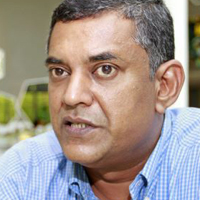
PETALING JAYA: A crime researcher wants Putrajaya to act against politicians who fuel racial and religious hatred, stating failure to do so will lead to the rise of extremist groups willing to carry out acts of violence and terrorism.
P Sundramoorthy of Universiti Sains Malaysia said the majority of ordinary peopled looked up to politicians as role models.
“When they abuse their powers to play up ethnic and religious sentiments, they are fuelling extremism. This is not going to end well if nothing is done. Politicians have the power to directly and indirectly influence ordinary folk to carry out acts of violence,” he told FMT.
Sundramoorthy, a researcher on crime and policing, cautioned that a terror attack on Malaysian soil was not impossible and people should no longer think it would only happen “to others but not here”.

He was commenting on Inspector-General of Police Abdul Hamid Bador’s revelation that four men linked to an Islamic State (IS) “wolf pack” cell had been planning to attack churches, Hindu and Buddhist temples and entertainment centres around Kuala Lumpur. The police seized weapons, bullets and six improvised explosive devices from them.
So far the police have nabbed four men between the ages of 20 and 49 comprising a Malaysian, who is alleged to be the leader, two Rohingya and one Indonesian. They are hunting for another three members of the cell.
Hamid added that the group had plotted the attacks to seek “revenge” over the death of firefighter Mohamad Adib Mohd Kassim in the wake of the Seafield Sri Mahariamman Temple fracas last November.
Sundramoorthy said attacks by “lone wolves” or individuals were also possible as local extremist groups were likely to recruit illegal immigrants to carry out violent acts.
“This scenario is very frightening. We must be alert. Malaysians have a role to play. We should not give in to extremism,” he added.
Expert: Expect more IS attacks

Meanwhile, terrorism expert Rohan Gunaratna said the IS was expanding to other parts of the world, especially to South East Asia, after losing its grip on Syria and Iraq.
The professor of security studies at the Nanyang Technological University said the group had been inspired to expand following its success in bombing places of worship in Indonesia, Philippines and Sri Lanka in 2018 and 2019.
“We will see a continuing trend of attacks in this region,” Rohan told FMT.
Rohan, who has interviewed terrorists, said the Malaysian police would have to build a partnership with religious institutions in Malaysia to protect churches, and temples belonging to the Hindu and Buddhist communities. - FMT



No comments:
Post a Comment
Note: Only a member of this blog may post a comment.